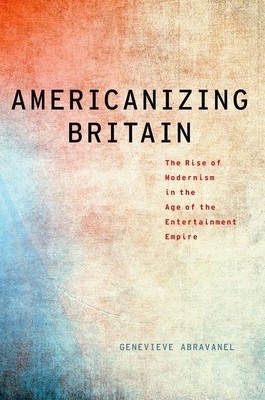
- We will send in 10–14 business days.
- Author: Genevieve Abravanel
- Publisher: Oxford University Press, USA
- ISBN-10: 0190272414
- ISBN-13: 9780190272418
- Format: 15.8 x 23.1 x 1.5 cm, softcover
- Language: English
- SAVE -10% with code: EXTRA
Reviews
Description
How did Great Britain, which entered the twentieth century as a dominant empire, reinvent itself in reaction to its fears and fantasies about the United States? Investigating the anxieties caused by the invasion of American culture-from jazz to Ford motorcars to Hollywood films-during the first half of the twentieth century, Genevieve Abravanel theorizes the rise of the American Entertainment Empire as a new style of imperialism that threatened Britain's own.
In the early twentieth century, the United States excited a range of utopian and dystopian energies in Britain. Authors who might ordinarily seem to have little in common-H.G. Wells, Aldous Huxley, and Virginia Woolf-began to imagine Britain's future through America. Abravanel explores how these novelists fashioned transatlantic fictions as a response to the encroaching presence of Uncle Sam. She then turns her attention to the arrival of jazz after World War I, showing how a range of writers, from Elizabeth Bowen to W.H. Auden, deployed the new music as a metaphor for the modernization of England. The global phenomenon of Hollywood film proved even more menacing than the jazz craze, prompting nostalgia for English folk culture and a lament for Britain's literary heritage. Abravanel then refracts British debates about America through the writing of two key cultural critics: F.R. Leavis and T.S. Eliot. In so doing, she demonstrates the interdependencies of some of the most cherishedcategories of literary study-language, nation, and artistic value-by situating the high-low debates within a transatlantic framework.
EXTRA 10 % discount with code: EXTRA
The promotion ends in 18d.04:00:18
The discount code is valid when purchasing from 10 €. Discounts do not stack.
- Author: Genevieve Abravanel
- Publisher: Oxford University Press, USA
- ISBN-10: 0190272414
- ISBN-13: 9780190272418
- Format: 15.8 x 23.1 x 1.5 cm, softcover
- Language: English English
How did Great Britain, which entered the twentieth century as a dominant empire, reinvent itself in reaction to its fears and fantasies about the United States? Investigating the anxieties caused by the invasion of American culture-from jazz to Ford motorcars to Hollywood films-during the first half of the twentieth century, Genevieve Abravanel theorizes the rise of the American Entertainment Empire as a new style of imperialism that threatened Britain's own.
In the early twentieth century, the United States excited a range of utopian and dystopian energies in Britain. Authors who might ordinarily seem to have little in common-H.G. Wells, Aldous Huxley, and Virginia Woolf-began to imagine Britain's future through America. Abravanel explores how these novelists fashioned transatlantic fictions as a response to the encroaching presence of Uncle Sam. She then turns her attention to the arrival of jazz after World War I, showing how a range of writers, from Elizabeth Bowen to W.H. Auden, deployed the new music as a metaphor for the modernization of England. The global phenomenon of Hollywood film proved even more menacing than the jazz craze, prompting nostalgia for English folk culture and a lament for Britain's literary heritage. Abravanel then refracts British debates about America through the writing of two key cultural critics: F.R. Leavis and T.S. Eliot. In so doing, she demonstrates the interdependencies of some of the most cherishedcategories of literary study-language, nation, and artistic value-by situating the high-low debates within a transatlantic framework.


Reviews